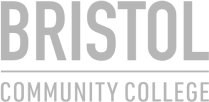Rubrics outline the advancement of competencies essential for achieving racial equity within the workplace, categorizing competencies into three tiers – Foundational, Intermediate, and Advanced. The rubrics are designed to be employed at capstone timeframes: 6 months, 1 year, and 3 years. Throughout these periods, participants are expected to progressively enhance their racial equity understanding, skills, and actions. By incorporating specific benchmarks, rubrics offer a tangible way to measure progress.
Rubrics
RUBRIC 1
Rubric 1 outlines the progressive development of competencies related to achieving racial equity in the workplace. It includes three tiers – Foundational, Intermediate, and Advanced – each spanning over a specific timeframe of 6 months, 1 year, and 3 years respectively. The rubric can be used to evaluate artifacts or responses.
KSAs
FOUNDATIONAL
Sourcing The Content Knowledge:
- Participants grasp the context and focus of ARE initiatives
- They understand the reality and impact of achieving racial equity in the workplace
- Participants recognize the role of implicit bias and microaggressions as structural/systemic barriers and obstacles, including racial trauma in higher education
Skills:
- Participants can identify potential barriers to ARE
- They intentionally engage in ARE efforts when needed
- Participants seek diverse perspectives on ARE issues and ask critical questions
- They maintain a learner-focused approach, being open to new information
- Participants recognize dissonance as an opportunity for deeper inquiry into ARE
Actions:
- Participants gather data on ARE using available tools.
- They identify and understand problems related to ARE, including structural/systemic barriers like implicit bias and microaggressions.
- Participants recognize specific ARE matters that need closer attention, such as addressing the impacts of implicit bias and microaggressions.
INTERMEDIATE
Knowledge:
- Participants make sense of ARE’s reality and impact on racial inequities in the workplace
- They analyze data using research evidence and suitable frameworks, including those highlighting the effects of implicit bias and microaggressions
- Participants consider options based on evidence of effective ARE strategies, including addressing impacts of implicit bias and microaggressions
Skills:
- Participants evaluate the adequacy of findings and address differing interpretations of data, including those concerning impacts of implicit bias and microaggressions
- They scrutinize data with an open mind and handle both qualitative and quantitative data
- Participants assess their capability and capacity for improvement and seek external expertise if required
- They reflect on their strengths and areas for improvement related to addressing impacts of implicit bias and microaggressions
Actions:
- Participants identify areas for change and those that remain effective without change. • They prioritize resource allocation to achieve equitable outcomes
- Participants assess available resources to take action
ADVANCED
Knowledge:
- Participants synthesize advanced knowledge of ARE’s impact and its interconnections with systemic racial inequities
- They critically analyze and synthesize complex research evidence, combining various frameworks to inform strategies that address structural barriers
- Participants evaluate the effectiveness of ARE strategies, considering evolving contexts and ongoing challenges
Skills:
- Participants facilitate collaborative discussions, guiding colleagues in navigating complex ARE challenges and potential solutions
- They demonstrate an ability to adapt strategies based on emerging data and insights, ensuring continued relevance and impact
- Participants mentor and guide others in addressing the impacts of implicit bias and microaggressions, fostering a culture of continuous improvement
Actions:
- Participants lead the identification and implementation of transformative change, addressing structural barriers and promoting racial equity across the organization.
- They leverage their expertise to strategically allocate resources, ensuring that initiatives aimed at equitable outcomes receive necessary support.
- Participants demonstrate an exceptional ability to assess available resources and creatively mobilize them to take impactful action in ARE efforts.
- They exhibit a steadfast commitment to advancing racial equity, driving tangible progress and outcomes in ARE matters while inspiring others to do the same
Capstone Evidence Indicators
- Over a 6-month period, participants create self-assessment narratives and surveys to outline their initial progress and set at least one goal for the 1-year capstone, utilizing at least one tool
- In the 1-year timeframe, participants complete surveys indicating at least 2 KSAs relevant to the professional tier, with at least 3 goals for the 3-year capstone and engage in “Train the Trainer” activities
- Over 3 years, participants further enhance their competencies, participating in service as “Train the Trainer” and setting goals for future implementation.
Measurement
- Participants’ progress is tracked through self-assessment narratives, surveys, and documented use of tools
- Goals and learning experiences are tracked in a journal
- Progress in identifying implicit bias is measured by retaking the Implicit Association Test
Reflection
- Participants express their enthusiasm for learning and making a positive impact in their workplace through ARE initiatives.
- They affirm their commitment to continued learning and growth in the field of ARE.
- Participants recognize the significance of addressing ARE for creating equitable and inclusive workplaces.
RUBRIC 2
Rubric 2 includes criteria for assessing knowledge, skills, and actions, as well as specific indicators for each level of achievement. The rubric also includes a section on reflection, which is an important part of the learning process. The rubric can be used to evaluate artifacts or responses.
KSAs
Knowledge:
- Foundational: Demonstrates an understanding of the basic concepts of ARE, including implicit bias and microaggressions
- Intermediate: Demonstrates a deeper understanding of the concepts of ARE, including the impact of implicit bias and microaggressions on individuals and organizations
- Advanced: Demonstrates a comprehensive understanding of the concepts of ARE, including the history, theory, and practice of achieving racial equity
Skills:
- Foundational: Demonstrates the ability to identify and challenge implicit bias in oneself and others
- Intermediate: Demonstrates the ability to use data and research to assess the impact of implicit bias and microaggressions
- Advanced: Demonstrates the ability to develop and implement strategies to address implicit bias and microaggressions
Actions:
- Foundational: Takes steps to increase awareness of implicit bias and microaggressions
- Intermediate: Takes steps to challenge implicit bias and microaggressions in oneself and others
- Advanced: Takes steps to address implicit bias and microaggressions in organizations and institutions
Capstone Evidence Indicators
- Foundational: Self-assessment narrative and survey indicating at least 1 KSA relevant to professional tier, with at least 1 goal for the 1-year capstone and use of at least 1 tool towards the goal
- Intermediate: Self-assessment narrative and survey indicating at least 2 KSAs relevant to professional tier, with at least 2 goals for the 1-year capstone and use of at least 2 tools towards the goal
- Advanced: Self-assessment narrative and survey indicating at least 3 KSAs relevant to professional tier, with at least 2 goals for the 1-year capstone and use of at least 2 tools towards the goal.
Measuring Progress
- Knowledge: Participants will be assessed on their knowledge of the concepts of ARE through a combination of written assessments, oral presentations, and group discussions
- Skills: Participants will be assessed on their skills in identifying and challenging implicit bias and microaggressions through a combination of observation, performance assessments, and self- reflection
- Actions: Participants will be assessed on their actions to address implicit bias and microaggressions through a combination of self-reflection, peer feedback, and supervisor evaluations
Reflection
- Foundational: Participants will reflect on their learning and experiences by writing a journal entry or completing a reflection paper
- Intermediate: Participants will reflect on their learning and experiences by participating in a group discussion or presenting their work to a panel of experts
- Advanced: Participants will reflect on their learning and experiences by developing a plan for future action and sharing their work with a wider audience
Achieving Racial Equity
PARTNER SCHOOLS





GET IN TOUCH
Contact Stacey Kaminski, Ed.d with questions about Achieving Racial Equity training and self-assessments.





